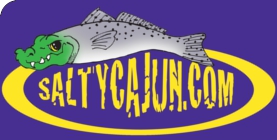
I agree with Smalls. Salt water intrusion is a real problem that will rob marsh and coastline in the long term, causing tremendous economic impact and job loss if reasonable steps are not taken to remediate and slow the problem.
Yes there are a lot of ecofreaks that support radical programs regardless of economic impacts or job losses. The global warming crowd trying to shut down all new petroleum drilling and refining are a good example.
In contrast to the myth of anthropogenic global warming, saltwater intrusion and resulting loss of habitat and coastline is a real problem with tremendously convincing scientific support. When remediation steps are considered, considering the impact on local economies and recreational fisheries both in the short and long terms are important, as well as considering the construction and maintenance costs. This is not a "we must fix the problem no matter the cost" situation, but rather, "let's weight the costs and benefits and impacts of various plans of action and inaction."
I would prefer to see other options explored more thoroughly before becoming enthusiastic about a saltwater barrier at Calcasieu Pass. How much more difficult would it be to levee off the whole ship channel with a few weirs between the channel and the east and west sections of Big Lake to keep a historical salinity gradient in Big Lake more comparable to the brackish status from the 70's or 80's? Or perhaps a salinity gradient from an earlier decade would better preserve the marsh without hindering shipping and creating an artificial and relatively unproductive freshwater system. Alternatively, Big Lake could be left salty and the levee and weir system be shored up and made more hurricane resistant along the east and west banks, sort of fortifying the current approach.

|






